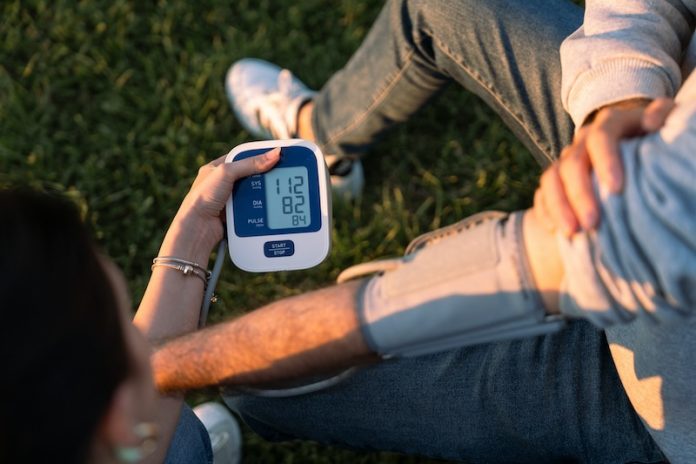
High blood pressure, or hypertension, is a condition that affects millions of people around the world and is a significant risk factor for heart attacks, strokes, and other serious health issues. Doctors measure blood pressure using two numbers: systolic and diastolic pressure.
The systolic number, which is the top number, measures the pressure in your arteries when your heart beats. The diastolic number, or the bottom number, measures the pressure when your heart is resting between beats.
For a long time, doctors have paid close attention to keeping the diastolic pressure between 70 and 90 to reduce the risk of heart-related problems.
However, new research challenges this approach. A study conducted by scientists from NUI Galway and other institutions analyzed data from over 47,000 patients worldwide and brought new insights into how doctors might better manage high blood pressure.
Their findings suggest that lowering diastolic blood pressure too much may not be harmful as previously thought. In other words, there is no clear danger in letting the diastolic number drop below 70, a limit doctors traditionally considered too low.
The researchers found no evidence that very low diastolic pressure would cause health issues in patients with high blood pressure.
On the other hand, the study confirmed that systolic blood pressure, especially when it is over 120, significantly increases the risk of heart disease and stroke.
The key takeaway from this study is that doctors may be able to focus more on lowering the systolic number to between 100 and 130mmHg without worrying about the diastolic number falling too low.
This change could lead to better outcomes for patients, as it simplifies treatment strategies. Doctors can now focus on getting the systolic pressure under control without being concerned about reducing the diastolic pressure beyond a certain point.
This approach could also help prevent complications such as heart attacks and strokes more effectively.
How to Prevent High Blood Pressure
Even though high blood pressure can be treated with medications, lifestyle changes play a key role in preventing and managing hypertension. Here are some ways to reduce your risk of developing high blood pressure:
Maintain a healthy weight: Carrying extra weight can put additional strain on your heart, which can lead to higher blood pressure. Losing excess weight can significantly reduce this risk.
Eat a healthy diet: A balanced diet rich in fruits, vegetables, whole grains, lean proteins, and low-fat dairy products can help keep blood pressure in check. Diets that focus on natural foods, like the Mediterranean diet, are known for their heart health benefits.
Reduce sodium intake: High sodium intake can cause your blood vessels to tighten, leading to increased blood pressure. Try to limit sodium to 2,300 milligrams per day or less. This means cutting down on processed foods, salty snacks, and certain restaurant meals.
Exercise regularly: Physical activity helps improve heart health and can lower blood pressure. Aim for at least 30 minutes of moderate exercise most days of the week. Activities like walking, swimming, and cycling are excellent choices.
Limit alcohol consumption: Drinking too much alcohol can raise blood pressure. Men should limit their intake to no more than two drinks a day, while women should stick to one drink a day.
Quit smoking: Smoking damages your blood vessels and contributes to higher blood pressure. Quitting smoking not only benefits your blood pressure but also reduces the overall risk of heart disease and stroke.
Manage stress: Chronic stress can cause temporary spikes in blood pressure and may contribute to long-term hypertension. Finding ways to manage stress, like practicing yoga, meditation, or deep breathing exercises, can help keep blood pressure levels steady.
Check your blood pressure regularly: High blood pressure often has no symptoms, so it’s important to monitor it regularly. Regular check-ups with a healthcare provider can catch hypertension early and ensure that it’s managed before it causes serious complications.
In conclusion, this new study suggests that doctors can shift their focus to managing systolic blood pressure without worrying about reducing diastolic pressure too much.
This approach might help simplify treatment and lower the risk of heart disease and stroke. Maintaining a healthy lifestyle remains a key strategy for preventing and managing high blood pressure.
This research, conducted by Bill McEvoy and colleagues, was published in Circulation, and it could lead to significant changes in how high blood pressure is treated around the world.
If you care about high blood pressure, please read studies about potatoes and high blood pressure, and top 10 choices for a blood pressure-friendly diet
For more information about high blood pressure, please see recent studies about impact of vitamins on high blood pressure you need to know, and the powerful link between high blood pressure and a potassium-rich diet.
Copyright © 2024 Knowridge Science Report. All rights reserved.



